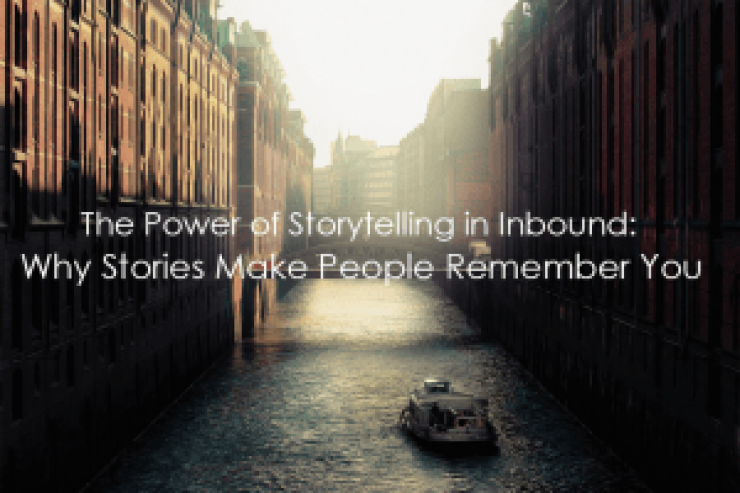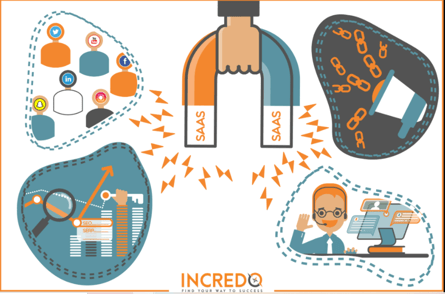The Power of Storytelling in Inbound: Why Stories Make People Remember You

The Power of Storytelling in Inbound: Why Stories Make People Remember You
Stories engage people on the emotional level. The real key to resonating with your audience is engaging with them emotionally, because in the end, it’s not about the product/service: its about the emotional value.
Storytelling has been around for as long as history remembers. Long before there were proper languages, words, letters and alphabets people told stories. Starting from huntsmen that went to get food for their tribe up to mother telling bed time stories to their children. About 65% of conversations in our lives consist of stories. Stories enchant, captivate and engage listeners. The beautiful thing about stories is that one can tune in, without knowing how it actually started. Once the story gets the attention, rest is easy. Think about the times you gather with your friends to exchange news or just have fun. Everything you talk about is essentially a story, either a very short or really long one. Our life is our story.
Stories Invoke Emotions
This is the secret behind business storytelling. When stating solid facts and statistics, you might get the attention of Wall Street specialists, but not everyday people. They won’t look at your sales numbers and think “hey, these guys got a 50% increase in review this month! I will definitely buy their brand”. It’s the actual story behind the brand that really makes people care. Storytelling is about the emotional connection with your audience. Stories that are relevant to your target audience engage and captivate binding them emotionally to your brand. After the connection is strong enough, people actually stop buying the product: they buy the emotions. Every world famous brand you can think of is using business storytelling to great success: Coca-Cola, Apple, Microsoft, Pepsi, etc. each one of those. Why? Because it’s the best way to engage with your audience and capture their emotional attention. People think they make their decisions based on logic. But in reality, they subconsciously make decisions based on emotions and then try to find logical reasons to back up their decision. This is another fact that proves storytelling to be the best way to engage readers.
Science Will Back This Up
It has been scientifically proven that stories engage more parts of the human brain that sheer facts and information. When reading listed data, only 2 parts of the human brain are active: the Broca’s area, which is responsible for language processing and Wermicke’s area, responsible for language comprehension. This means that your brain is only focused on reading and understanding the facts, nothing else. When there are too many facts, the brain starts to lose track of it, because eyes read the information faster than brain can process it. In result, you stop caring and lose attention, unless it’s something absolutely needed, like an exam text or some reports that you need for your job. You are just a listener that happened to pass by. When reading stories however, your brain is active on every sensory level: visual, motor, somatosensory, olfactory and auditory. In other words, stories awake your imagination and pull you inside to picture, feel, sense, visualize, hear and even smell everything that is described. This time, you feel as a participant, not a listener and that makes all the difference. You personalize the story, try to figure out what you would do in a similar situation, what solutions can be found, what will happen next, etc. People are more inclined to read or watch content that has a story as opposed to facts and statistics. This doesn’t mean you should start making Hollywood drama films. Facts are still important, but try to back them up with stories to make your readers and viewers participate not just listen. Remember the ancient Chinese proverb: “tell them and they will forget, show them and they will remember, engage them and they will understand.” This is storytelling power in a nutshell.
Don’t Tell Just a Story: Tell the Right Story
When implementing storytelling in your marketing, it’s important to stay to the point. Remember that you are still doing marketing, it’s still inbound, just different strategy: you invoke engagement, your story encourages readers to share it and just makes them fall in love with your approach, not the product or service . You don’t want to wander off topic and tell a fairy tale just to engage your audience. Your content should still be focused on your buyer personas, their concerns, challenges and pain points. A good storyteller will stay relevant to the topic, but present it in a more engaging way. Your brand story shouldn’t be about your product or brand per se, it should be about the value that your buyer personas will get when engaging with your product/service or brand. Don’t overthink this too much, stories are something that come naturally, so make your content that way. Why do YOU think stories make people remember your brand? Share your thoughts with us in the comments below!
Tags:
Other
August 20, 2015


Comments